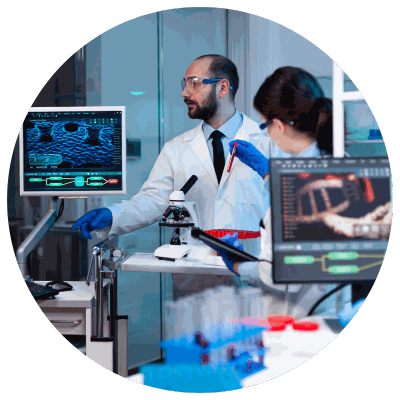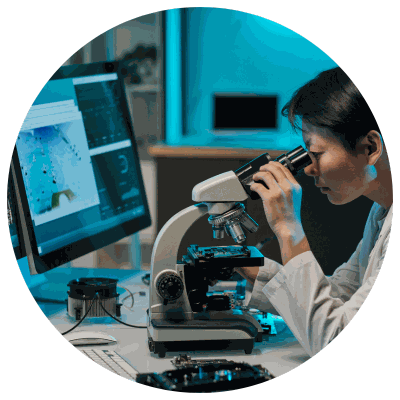AI successfully maps microbial metabolism of two microbes despite zero baseline knowledge
June 15, 2023 | Microbiology Lab
Researchers at the University of Illinois at Urbana-Champaign, and University of Michigan (U-M) have developed an artificial intelligence (AI) system, dubbed BacterAI, which is making it possible for robots to conduct autonomous scientific experiments—as many as 10,000 per day—potentially driving a drastic leap forward in the pace of discovery in areas from medicine to agriculture to environmental science.
Paul Jensen, PhD, who is now at the University of Michigan, described how BacterAI mapped the metabolism of two microbes associated with oral health, even though it had no baseline starting information. In their paper titled “BacterAI maps microbial metabolism without prior knowledge,” the investigators explained, “BacterAI learns by converting scientific questions into simple games that it plays with laboratory robots. The agent then distills its findings into logical rules that can be interpreted by human scientists.”
Deep reinforced learning (RL) is a branch of AI in which agents can solve some games by trial and error, even if they don’t have any prior strategic knowledge, or even know the rules of the game. “Converting biological research questions into games could therefore allow the study of microbes using RL techniques,” the scientists suggested. “We developed an RL agent that solves combinatorially large research questions by ‘playing’ science with automated experiments.”
Bacteria consume some combination of the 20 amino acids needed to support life, but each species requires specific nutrients to grow. The U-M team wanted to know what amino acids are needed by the beneficial microbes in our mouths so they can promote their growth.
But the applications go beyond microbiology. Researchers in any field can set up questions as puzzles for AI to solve through this kind of trial and error. “With the recent explosion of mainstream AI over the last several months, many people are uncertain about what it will bring in the future, both positive and negative,” said Adam Dama, PhD, a former engineer in the Jensen Lab and lead author of the study. “But to me, it’s very clear that focused applications of AI like our project will accelerate everyday research.”

